ASD Stories chapter 1 | March 31 2023
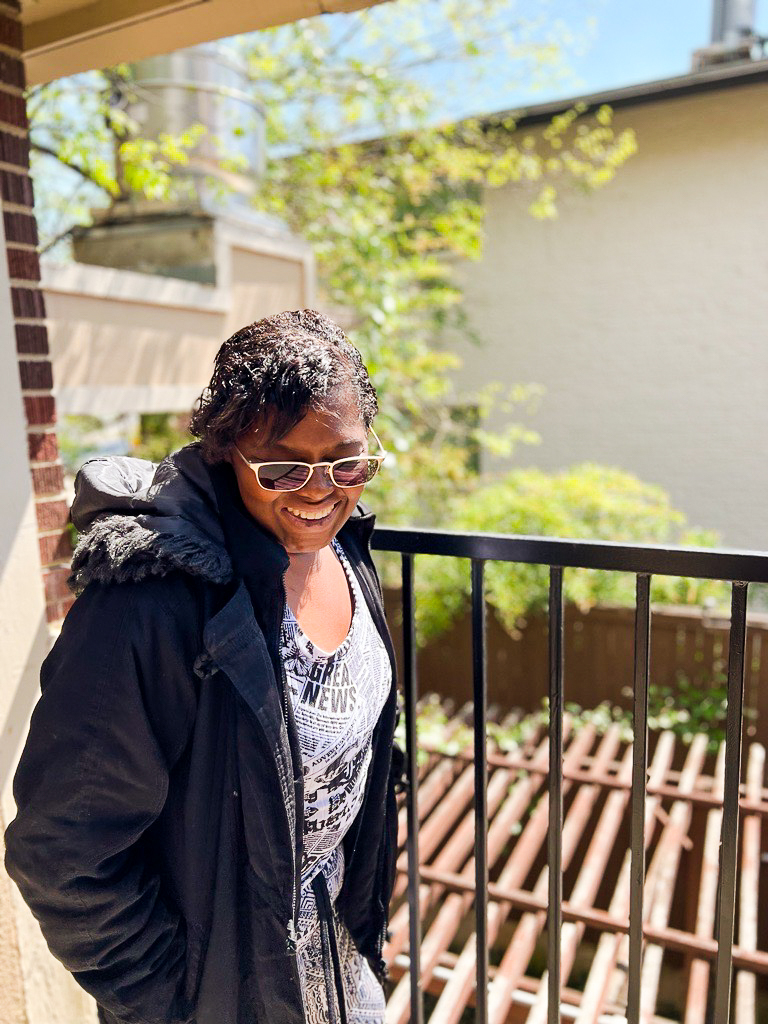
As she told us her story, remembering loved ones she had lost and the incredible hardships she had gone through over 20 years of addiction, Veronica teared up. To our surprise, she apologized multiple times for getting emotional, because she was “supposed to be tough.”
Veronica was used to listening—it was her way of helping every ASD resident she came across. By the end of our conversation, this shy, soft-spoken woman had opened up, cracking jokes, taking our advice about vocational programs or peer counselor positions she could apply for to continue her empathetic healing in a more official capacity, and asking us if we had any more questions for her—it made her feel “kind of important,” she confessed with a grin, “like somebody wants to talk to me.”
We hope you enjoy reading Veronica’s story as much as we enjoyed meeting her.*

I wasn’t supposed to end up with HIV. But I did. [And] I’m still here.
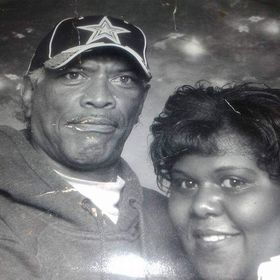
My boyfriend used to live at Hillcrest… I thought it was just a nursing home…
We had started dating, and eventually we ended up going to… an appointment for him. And he’s like, I got something to tell you. And so I said, Okay, I’m thinking he’s going to tell me, oh, you he’s dying of cancer or something. That’s when he told me I have HIV. And I was like, what am I supposed to do, run away? And we end up staying together like almost seven years…he passed away last year, 2 weeks before I moved in.
What’s the experience been like living at ASD?
Fun. I’ve had a lot more good days and I’ve had bad days. I got [this apartment] in May. By January of 2023, I had a vehicle, I had a car… I can go and pick up Mama, say ‘hey let’s go shopping or something!’ And that feels pretty good. I wouldn’t trade it for nothing.
The last three years of recovery has been more exciting than anything I’ve seen, probably because I started doing drugs when I was 21 and I didn’t stop until I was 38, 39. So I’m actually living now. I mean, I’m able to know what it’s like to have responsibilities. I’m able to know what it’s like to go out with friends and have fun. Things that I should have been doing when I was from the age of 21 up until now. I should have been doing it. And it’s been pretty fun. I mean, I wouldn’t trade it for nothing in the world. And I thought that when I was in my addiction that it was all fun. But actually being responsible and having a life is…better.
Why did you agree to share your story with us?
I always feel like that if I ever got a chance to share my story, it might help the next person. I wish that I would have heard somebody else’s story before I got as far as I did, but unfortunately I didn’t. But fortunately I’m still here to talk about it.
September 5th, 2000. I took my last hit of cocaine and ended up in the hospital [at] Methodist. And when I woke up, they were pulling tubes out of my throat about to call my family because I stopped breathing. But I’m here. Maybe, like I said, it would help the next person.
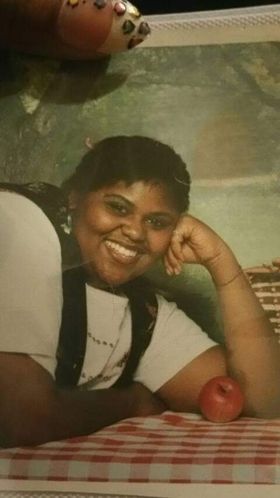
I got [this apartment] in May. By January of 2023, I had a vehicle, I had a car… I can go and pick up Mama, say ‘hey let’s go shopping or something!’ And that feels pretty good. I wouldn’t trade it for nothing.

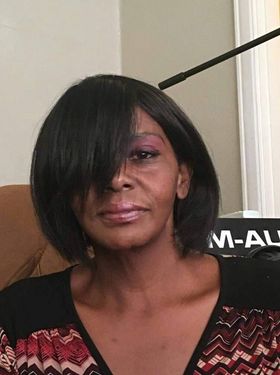
Knowing that if I don’t stay sober and they drug test me, I’m going to be back out there [on those] sidewalks…if I go back out there doing dope, and they think “she’s using, we’re going to drug test her,” I’m going to get kicked out.** And I don’t want to be back out there. I don’t want to die out there… I want to die around family, you know, happy, you know, natural causes. I’m already on dialysis. So ASD is my family, you know? And so this is where I want to be with my family. And I know that back out there on the streets is not going to get me anywhere but back out there on those streets without a life ahead.
At 42 years old, I have responsibility.
I know that I can’t go out there and do my case manager’s job. I can’t do Miss Constance’s job. But just for that moment of having someone listen, or just that moment of being able to pick up the phone and answer it for someone and transfer a phone call because you never know what that how critical that moment could be.
Advice to anyone struggling:
I don’t care if it’s 3:00 o’clock in the morning, pick up the phone and call somebody if you can.
And I think that if I would have had each time that I had the opportunity to talk to somebody, if I would have, I probably wouldn’t have made it this far out there on drugs, I probably would have changed a long time ago. So [I want to] just give somebody the opportunity that I didn’t have.
Someone told me you have to have the disease. Don’t let the disease have you, you know, because if you do, you’re going to be depressed. But I got it. I can’t change it. This is my life. I gotta live it.

I think that my worst was losing my dad on my mom’s birthday last year. Didn’t sleep for like 3 days. But my best moment when I thought about it realized no matter what, everything’s going to be okay. I mean keep praying and keep pushing. I mean, my favorite word at this point in my life is push. No matter what’s going on, the push, pray until something happens.
I’d heard about cocaine, what it would do to you. But, you know, no one held a gun to my head and said through it, I did it because I wanted to, you know? And, you know, just when you think that it’s over, it’s not. I mean, you think people start, think that they start even once they graduate. No, sometimes that’s where it stops. I know this where it stopped for me. But then now at this point, I’m 42, about to be 43. I’m living. And I’m serious. I think that if I wouldn’t have gotten this apartment here, I probably would’ve been back out there by now. Because at that point when I did get this appointment, I was about to give up. I had been waiting almost three years. But I didn’t. I couldn’t.
I think that if I wouldn’t have gotten this apartment here, I probably would’ve been back out there by now.
At 42 years old, I have responsibility.

It was aggravating. I wanted to give up, but I didn’t want to be back out there sleeping on the concrete anywhere on the sidewalk. I didn’t want to be out there sleeping by a dumpster. I didn’t want to be out there sleeping in vacant houses. And I definitely wanted to get out of the house with my Mama. [Laughs]
Life with HIV:
I never felt that I was supposed to end up with HIV. Never. All this stuff… It wasn’t supposed to happen to me because this is how I was raised. I was supposed to be a doctor, lawyer or nurse. I had an aunt that was a nurse. I was at least supposed to be a nurse. I wanted to be a case, a case manager, [a] social worker or something, a counselor. Somewhere in those fields, I was supposed to, I wasn’t supposed to end up on drugs. I wasn’t supposed to end up with HIV. But I did. [And] I’m still here.
*This interview has been edited for brevity and to maintain anonymity.
**Please note that the views expressed in this interview are those of the individual and do not reflect the policies or practices of AIDS Services of Dallas (ASD). It is important to clarify that ASD does not evict clients based on drug tests. In fact, we provide support and resources to help those struggling with substance use disorders get treatment and support their recovery. We also offer in-house Alcoholics Anonymous and Narcotics Anonymous groups for our clients. We appreciate Veronica’s willingness to share her story and experiences with us, and we hope that her journey can inspire others to seek the help they need to achieve sobriety.
